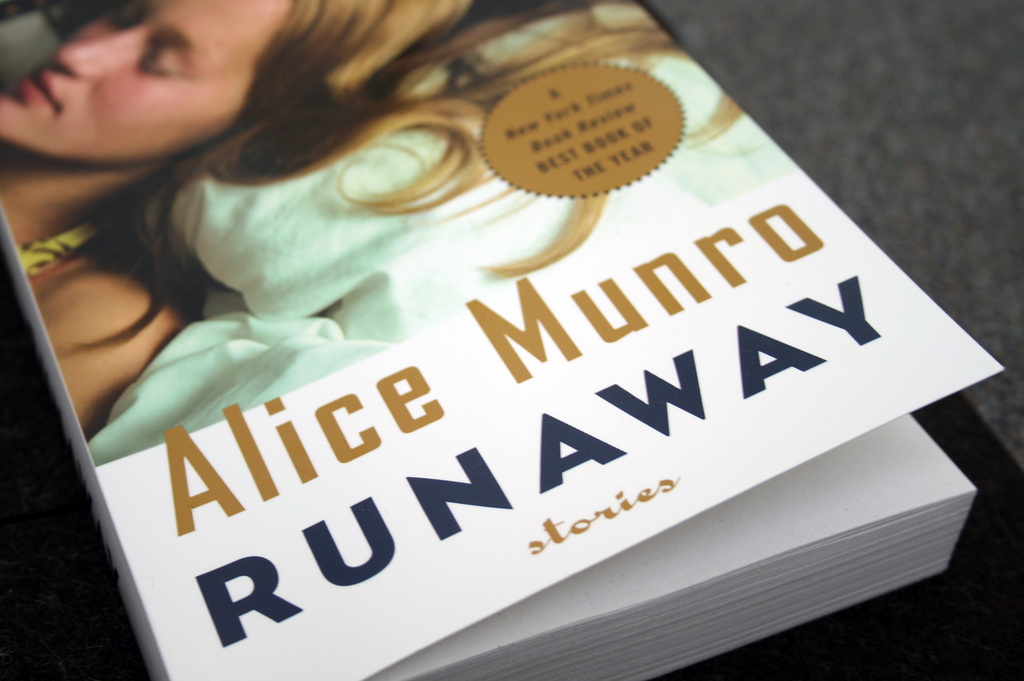
14/10/2013, by CLAS
Alice Munro: Nobel Laureate
‘It was anarchy she was up against – a devouring muddle. Sudden holes and impromptu tricks and radiant vanishing consolations.’ (Alice Munro, Open Secrets)
The award of the Nobel Prize to Canadian short story writer Alice Munro (b. 1931) has been greeted with pleasure by admirers from around the globe. Munro’s artistry is appreciated equally by ordinary readers and by fellow writers. It is rare for any author to achieve a world-class reputation based on a single genre—particularly the short story, so often under-rated as a lesser form. Munro’s œuvre amply demonstrates just how emotive, nuanced and compelling this form can be. Critics note that her ‘short’ stories have in fact become longer and increasingly complex with the passage of time. Episodic, shifting unexpectedly across time and place, the gaps and omissions are as telling as the content, and her stories typically close with a coda or afterthought seemingly unrelated to the central incident, twisting the narrative in new and unexpected directions. Munro illuminates ‘the other side of dailiness’ (‘Royal Beatings’) – the dark underside of domestic life, the disjunction between public and private personae, the flashes of insight when things which are normally hidden suddenly become visible. My personal favourites from Munro’s seemingly inexhaustible canon come from the heart of her career – classics like ‘Meneseteung’ (Friend of My Youth), a ‘frame story’ juxtaposing the obscure life of a nineteenth-century ‘poetess’ with the unnamed contemporary woman who narrates the story, or ‘A Wilderness Station’ (Open Secrets), a gothic ‘murder mystery’ that plays tongue-in-cheek with that most (stereo)typical of themes: survival in the backwoods of Canada. Like any prestigious award, the Nobel Prize confers instant recognition, increasing the cultural capital of its recipient. At least in this instance, the consensus seems to be that the accolade is well deserved. It can only be a good thing if more people now come to know and love the work of Alice Munro as a result of this honour.
Susan Billingham, Associate Professor in Canadian Studies
Photo: Matthew Allard
No comments yet, fill out a comment to be the first

Leave a Reply